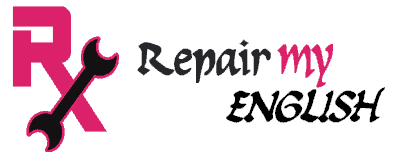
This blog is about IELTS reading test tips and tricks. It includes general reading test tips and tricks as well as IELTS academic reading practice test tips and tricks which will help you to clear your IELTS reading exam with your desired band score. IELTS Reading Test is different for Academic Training and General Training. The duration for both tests is an hour, and you won’t get extra time to transfer your answers from the question booklet to an answer sheet. The passages are entirely different for General training students and academic training students. However, the techniques to solve the questions are the same.
10 IELTS Reading Test Tips and Tricks to achieve 8+ band score:
1. Read the instructions carefully: In IELTS Reading and Listening test, it is essential to read the instructions carefully. While solving the reading section, you will have specific instructions such as:
- Write not more than one word or a number,
- Write not more than two words or a number,
- Write not more than three words or a number.
Suppose you had written the answer in three words when only two words were mentioned in the instructions; your answer will be marked incorrect. The instructions vary from one question to another. So, make sure you read the instructions carefully.
2. Skim the text and the questions:
When you start your first section, skim the first paragraph to get an overview of the passage. Read the title and the subheadings of the text carefully. Then start reading the questions as you have to apply different strategies for different question types. Most of the answers are in a sequence, so it will be easier for you to find the answers.

The best IELTS reading test preparation tips include learning the techniques of Skimming and Scanning. These techniques are used in reading text. For example, when you read a newspaper, you don’t read every word or sentence. You generally read the headings and the article to get an overview of the complete information. The method of understanding the overview without reading in detail is known as skimming.
On the other hand, scanning is about locating a particular piece of information in the passage, like finding the Indian Cricket team’s score in the newspaper. We don’t read the entire newspaper to see the score of the cricket team. We straightforwardly go to the sports page and skip all other sports-related news, including chess, basketball, and football, and directly go to the cricket-related headline. That’s called the scanning technique. If you are unaware of skimming and scanning methods, learn how to apply them to solve your IELTS reading test. These techniques will help you enormously in achieving a high band score.
4. Highlight keywords in the text:
Each question in the reading passage will have a keyword that will help you find the answers’ right location. Learn to identify keywords; it will save a lot of your time. You should also check whether the keywords are paraphrased or not. If you solve one reading practice test every day, it will increase your speed to find the correct answers through keywords.
5. Master the different techniques for different question types:
IELTS reading test includes various question types, and you need to understand all question types and focus on learning different strategies for different question types. For instance, the strategy used for True, False, and Not Given is entirely different from fill-ups and match the heading question types. That’s why it is essential to focus on both question types and learn different strategies for finding answers to achieve a high band score.
6. Identify synonyms:
The IELTS reading test uses a plethora of synonyms in the text. So, never try to find the exact keyword of the question in the passage. For example, if you see the keyword “freedom” in the question, you don’t need to find the same word in the text. You may find the word “liberty” in the passage. Synonyms are extensively used to assess the candidate’s understanding of vocabulary in the IELTS exam. So, focus on this factor seriously.

7. Save Time:
Don’t spend too much time on one question. If you can’t find the answer of one question, take a guess and move to the next question. There are specific hard questions mentioned in the text which will waste your precious time. So, skip those questions and start finding out the answers of other questions. Many times the answers are relatively easy to find after two or three difficult questions. It will be beneficial for you to concentrate on easy questions first. If you have a few minutes left at the end, you can review the difficult questions later.
8. Follow the sequence:
Most of the answers are in a sequence. So, if you find out the answer of the sixth question in the third paragraph, the answer of the next question will be in the fourth and fifth paragraphs. By following the sequence, you can easily find out the correct location of answers and save time. This strategy will not work in all question types, mainly match the heading kind of questions. To solve match the headings questions, you need to read the first three sentences and the last three sentences of the paragraph with the question statement. There is a possibility that four questions will be correct out of 6 questions, and for the rest of the questions, you may need to read the entire paragraph.
9. Read some parts of the text in detail:
Don’t try to read the entire passage. Once you find the correct location, just read that part in detail. If you try to read the whole passage, you will waste a lot of your time. Instead, focus only on a particular section where you find the keyword and understand its meaning. This strategy will help you to get a high band score.

10. Practice:
It is essential to do a lot of practice tests. You can purchase IELTS Cambridge test books for self-study. The pattern of reading tests in books is similar to IELTS final exam. Practicing these tests will help you check your band score and how much improvement you need. If you find your score doesn’t improve after practicing the Cambridge test for one month, don’t hesitate to take professional help. Join a good coaching center that provides small batches, so that teachers will give you individual attention.
